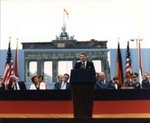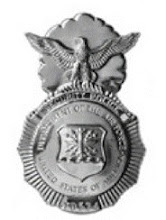
James Madison has left an imprint on American history all out of proportion to his size. He stood about 5-4, dressed mostly in black and generally was a great intellect, the author of most of the constitution. He certainly was the driving force behind the concept of a republic. A much underrated founding father by the name of Gouverneur Morris was responsible for the organization and form of the constitution as well as much of the text. It is generally accepted that wrote the famous Preamble beginning "We the People."
Madison's position going into the convention was that representation in congress should be tied to population. In his estimation, the biggest states should have the most representatives. This ran up against some stiff resentment from the smaller states who rightfully feared being steamrolled by the bigger states. A tyranny of the majority was a very real concern for these states that would nearly always be in the minority position. Eventually the "Great Compromise" was struck that yielded our constitution and the republic. In Madison's words, it was like a centaur, neither man nor beast. Not a pure democracy, but a hybrid of two ideals of governance.
The only written record is the notes on the constitutional convention by Madison that chronicled the deliberations that stretched throughout the long hot summer, from May to September 17, 1787. It is interesting to remember that the constitution was not the first governing document of the country. The Articles of Confederation proceeded it in 1777. The Articles proved to be inadequate as a governing document. It was a cumbersome instrument that lacked a strong central government able to carry out the basic functions of government. The central government was subordinate to the states. The states controlled commerce, the state militias, and taxation.
As the delegates convened, 55 strong from 12 of the 13 states, Rhode Island stayed away, they were surprised that some did not want to amend the Articles, the stated purpose of the convention, but to abolish them. The convention went about forging the constitution, which is really a bundle of compromises, between large and small states, slave and free states, northern and southern states, states that depended on commerce for their economy and states that were agrarian. The northern states condemned slavery, but compromised with slaveholders because to not do so, would have meant the end of any hope for a constitution among the thirteen states. This would surely mean the end of the US as a country. Drama? Yes, real drama.
Madison was a strict constructionist and governed as one while in the congress and as the fourth president as he took office on March 4, 1809. Just as his mentor, Thomas Jefferson found during his tenure, the presidency was a demanding and in some respects, a dismal challenge. As with all his predecessors he was plagued by the war between France and England which began during the French Revolution. England came into the conflict with intent of returning a monarchy to France. Napoleon had stepped into the role as emperor and the war raged on. As his predecessors were, he was confronted with the damage inflicted on the US by the trade issues with both England and France, America's major trading partners. Washington had issued the Neutrality Proclamation in 1793 and warned against tangling alliances in his Farewell Address.
Jefferson had requested and received the ill-fated Trade Embargo of 1807. In it, the US refused to trade with both England and France which only served to damage the economy of the US. The congress answered with the Non-Intercourse Act of 1809 in which they vowed to trade with every country except Britain and France. In 1810, congress passed Macon's Bill No. 2. This bill stated that trade would be opened with the world and whichever of the two countries that repealed their commercial restrictions. That country would be recognized by the US and the embargo would stay in place against the country refusing to lift their restrictions.
Imagine the problems for Madison with the trade issues confronting the country. Napoleon immediately accepted the offer, cleverly placing the US in the position of squaring off with the British. Britain refused to lift its sanctions therefore, the US was effectively no longer neutral and was now an ally of France against Britain. Shortly, the US found itself at war with Britain in the War of 1812.
The War of 1812 did not go well for the US resulting in the burning of the White House, the Capitol, and other government buildings in 1814 as Madison became the only president to face enemy fire in wartime. He was forced to flee with his wife for their lives. Dolly Madison saved the famous portrait of Washington from being destroyed by the British, who dined in the White House before burning it. The Star Spangled Banner was written by Francis Scott Key as he watched the massive bombardment of Fort McHenry in the Baltimore harbor while Washington burned.
In 1816, the Bank of the US was revived for another 20 years. The Tariff of 1816 was passed placing a protective tariff of about 25% thereby, setting the precedent of protective tariffs that would used many times in the future and became a factor in future elections. In 1817, Madison burnished his strict constructionist credentials when he vetoed the American System, a bill that authorized $1.5 million for use by the states to build infrastructure. Madison vetoed it on the grounds that it was unconstitutional in that federal money could not be used for state projects. States therefore, were forced to finance their own improvements which New York did with success building the Erie Canal finished in 1825.
This is a monumental moment in that Madison, as the Father of the Constitution, as a strict constructionist felt that those powers enumerated in the document were the extent of the power of federal government.
If it is possible to divine the intent of the framers, Madison's actions speak louder than his words. Read Madison in his own words.
A well regulated militia, composed of the body of the people, trained in arms, is the best most natural defense of a free country.
All men having power ought to be mistrusted.
Do not separate text from historical background. If you do, you will have perverted and subverted the Constitution, which can only end in a distorted, bastardized form of illegitimate government.
It will be of little avail to the people that the laws are made by men of their own choice if the laws be so voluminous that they cannot be read, or so incoherent that they cannot be understood.
The Constitution preserves the advantage of being armed which Americans possess over the people of almost every other nation where the governments are afraid to trust the people with arms.
What is government itself but the greatest of all reflections on human nature? If men were angels, no government would be necessary. If angels were to govern men, neither external nor internal controls on government would be necessary.










9 comments:
All men having power ought to be mistrusted.
----------------------
Especially if they have economic power. As we have seen over the last half of the century especially.
... in fact that is probably the largest point of contention between right and left.
Now I make no qualms and I do not apologize. I am hard left. Now as is true of many of us we realize that the problem of governance vs. rule is extremely real and one that the left hasn't solved.
Then what happens is that the right goes on about the left having failed in all things and let's go back to the one system that works. Well, you have to hold up there a bit.
We are all in agreement with the founders that this problem of governance vs. rule is critical. But the right feels they have it resolved through the agency of the free market. Bit of a cop out defining the decisions of the so called free market as necessarily optimal as we have seen and it puts the right in a tough position of having to go through all kinds of distortions to explain the failures.
In fact, what the right has done is merely kick the can down the street and we still need to find a way to get together and listen to each other. Neither side has a complete solution and it would truly benefit us to pick the best ideas from each side if we are to achieve the founders goal of good governance.
Ducky,
My best reply is that we don't have a free market government. We have a regulated capitalistic system that is not free in any sense. The agencies instituted by the government have made a shambles of the economy.
I don't doubt that there needs to be some system of a watchdog variety, but regulating a capitalist system something akin to shoveling the ocean with a pitchfork. FDR-style, heavy regulation instituted for the sake of doing "something" did nothing but prolong the depression. Temporary make-work jobs do nothing to mend the economy.
When it comes to straightening out the economy I believe the profit motive is powerful and will lead most businesses to take the right approach. Rogue businesses are news because they are few. Watchdogs could curb most white collar crime.
Law&Order,
of particular interest was the role lifting of tariffs played in bringing about the War of 1812.I wasn't aware of that.
Thank you.
Oso,
It wasn't so much tariffs as it was duties and trade restrictions laid out by both the French and England against each other and those who traded with the enemy. It was tangled mess and Jefferson and congress stepped in it with the Embargo Act of 1807. Thanks for the visit.
I hear that response quite a bit L&A. It is a standard problem with Libertarians. When things go south it's because we didn't have enough Libertarianism. It gets you out of the bind of having to accept the defects of your system.
Over the last 30 years we have constantly loosened regulation and we have been in a period of giving plenty of free chips to the flambeurs on Wall Street. It failed and we need to compromise in order to prevent further bubbles.
Markets fail and they can fail badly, just like governments. I certainly don't advocate completely abandoning the market economy but I want it on a leash.
Sounds Like the Taxyertwoshits Troll, Ducky has a sever case of penis envy against men of power...they have had it, he would like it, but because he doesn't, he's a bitter angry Obamaite.
L&O Teach, Outstanding Post...Ducky was half way civil in his remarks which was more easy to comprehend,,,but Sometimes????I have seen the disassembly of our freedoms,Individual ... Freedoms that our forefathers established through the Declaration, and Bill of Rights... These are being taken a little at a time,,,,chipping away,,,,Anyway,,,great read.....stay well....
"Do not separate text from historical background..."
Can you provide the context for this quote? I see it in many places, and while I agree with the principle, it troubles me that I find NO ONE who lists the original context of the quote itself!
Post a Comment